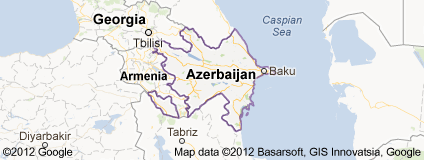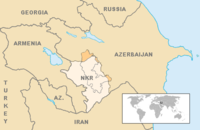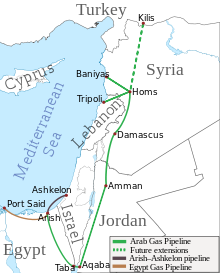Come Out Of Her My People
 Thursday, June 28, 2012 at 6:00AM
Thursday, June 28, 2012 at 6:00AM I have been saying you need to leave Babylon. Today Ted Pearce says it musically for me.
 Bible,
Bible,  Leaving Babylon,
Leaving Babylon,  Music
Music
"One should either write ruthlessly what one believes to be the truth, or else shut up."
Arthur Koestler
 Thursday, June 28, 2012 at 6:00AM
Thursday, June 28, 2012 at 6:00AM I have been saying you need to leave Babylon. Today Ted Pearce says it musically for me.
 Bible,
Bible,  Leaving Babylon,
Leaving Babylon,  Music
Music  Wednesday, June 27, 2012 at 6:00AM
Wednesday, June 27, 2012 at 6:00AM I heard a very interesting interview with Moncef Cheikhrouhou, economist and member of the Tunisian Parliament. He said that little did we know that the fall of the Berlin Wall and Communism was also the fall of capitalism. Looking back over the years since the fall of the wall, I see that he has a point.
While the Soviet Union was not technically a communist state, nor is the West technically capitalist, the two systems evolved and competed with each other. The idea was that business needed to be big in order to complete with the evil Ruskies. The sheer size of the monolithic corporate capitalistic system is just as non-sustainable as communism was.
 Looking back over my last trip to Russia and comparing it to my first trip I see market improvement in the society. New bridges, new busses, and a general sense of successful business at the shops. In America today our infrastructure crumbles and business is in decline.
Looking back over my last trip to Russia and comparing it to my first trip I see market improvement in the society. New bridges, new busses, and a general sense of successful business at the shops. In America today our infrastructure crumbles and business is in decline.
While poverty is greater in Russia than in the US, it is a different kind of poverty. Most Russians own their own apartment, especially the elderly. They have a greater security than the family in America who is just a few paychecks from being out on the streets.
We are headed for a period of austerity not seen since the Great Depression. I have never seen a beggar in Russia. They are common place here. There will be more, soon. Are you ready?
Here is an episode of the Max Keiser report. The interview with Moncef Cheikhrouhou is toward the end of the show.
 Tuesday, June 26, 2012 at 6:00AM
Tuesday, June 26, 2012 at 6:00AM Of course the famous "McLuhanism" was "Medium is the message." in other words what medium we use to tell a story will shape that story. This documentary tells McLuhan's story: a 19th century man stuck in the 20th century and not liking it very much.
 Propaganda
Propaganda  Monday, June 25, 2012 at 6:00AM
Monday, June 25, 2012 at 6:00AM I mentioned last Saturday that Russia had legitimate fears for their fellow religionists that now live in Syria. This explains a lot of Russian support for Syria. But there are other geopolitical reasons as well.
There are regional rivalries in the area. Russia supports some governments and does not support others. For example Russia supports Armenia in its dispute with Azerbaijan over a province in Azerbaijan.
 On 23 August 1990, Armenia declared independence, becoming the first non-Baltic republic to secede from the Soviet Union. When, in 1991, the Soviet Union was dissolved, Armenia's independence was officially recognized. However, the initial post-Soviet years were marred by economic difficulties as well as the break-out of a full-scale armed confrontation between the Karabakh Armenians and Azerbaijan (Nagorno-Karabakh War). The economic problems had their roots early in the Karabakh conflict when the Azerbaijani Popular Front managed to pressure the Azerbaijan SSR to instigate a railway and air blockade against Armenia. This move effectively crippled Armenia's economy as 85% of its cargo and goods arrived through rail traffic. In 1993, Turkey joined the blockade against Armenia in support of Azerbaijan.
On 23 August 1990, Armenia declared independence, becoming the first non-Baltic republic to secede from the Soviet Union. When, in 1991, the Soviet Union was dissolved, Armenia's independence was officially recognized. However, the initial post-Soviet years were marred by economic difficulties as well as the break-out of a full-scale armed confrontation between the Karabakh Armenians and Azerbaijan (Nagorno-Karabakh War). The economic problems had their roots early in the Karabakh conflict when the Azerbaijani Popular Front managed to pressure the Azerbaijan SSR to instigate a railway and air blockade against Armenia. This move effectively crippled Armenia's economy as 85% of its cargo and goods arrived through rail traffic. In 1993, Turkey joined the blockade against Armenia in support of Azerbaijan.
 The Karabakh war ended after a Russian-brokered cease-fire was put in place in 1994. The war was a success for the Karabakh Armenian forces who managed to capture 16% of Azerbaijan's internationally recognised territory including Nagorno-Karabakh itself. Since then, Armenia and Azerbaijan have held peace talks, mediated by the Organisation for Security and Co-operation in Europe (OSCE). The status of Karabakh has yet to be determined. The economies of both countries have been hurt in the absence of a complete resolution and Armenia's borders with Turkey and Azerbaijan remain closed. By the time both Azerbaijan and Armenia had finally agreed to a ceasefire in 1994, an estimated 30,000 people had been killed and over a million had been displaced.
The Karabakh war ended after a Russian-brokered cease-fire was put in place in 1994. The war was a success for the Karabakh Armenian forces who managed to capture 16% of Azerbaijan's internationally recognised territory including Nagorno-Karabakh itself. Since then, Armenia and Azerbaijan have held peace talks, mediated by the Organisation for Security and Co-operation in Europe (OSCE). The status of Karabakh has yet to be determined. The economies of both countries have been hurt in the absence of a complete resolution and Armenia's borders with Turkey and Azerbaijan remain closed. By the time both Azerbaijan and Armenia had finally agreed to a ceasefire in 1994, an estimated 30,000 people had been killed and over a million had been displaced.
The reason for the conflict is the status of ethnic Armenians within the old borders of Soviet Azerbaijan. Nagorno-Karabakh was in particular majority Armenian ethnically.
So how does this relate to Syria? Azerbaijan is rich in oil, but is a landlocked country. Where will the pipelines go? If an agreement is ever given one logical route would be through Armenia, Turkey, and then Syria. The difficulty of negotiating such a pipeline should be evident. But from the Russian perspective this would be far superior than going through Georgia, an anti-Russian country to the north of Azerbaijan. For some reason Azerbaijan does not want to ship their oil through Russia! In the Middle East oil is always in the picture, even in countries that do not have oil like Syria.
 Look at the natural gas pipeline map from Egyptian gas deposits. Is it a coincidence that Homs, a major pipeline center is an area of conflict in the unrest in Syria?
Look at the natural gas pipeline map from Egyptian gas deposits. Is it a coincidence that Homs, a major pipeline center is an area of conflict in the unrest in Syria?
Another reason for Russian support of Syria flows out of the breakup of the Soviet Union. The Russian Federation has few warm water ports. What ports it does have tend to be in other countries like the Ukraine. Since 1971 there has been a Russian naval base in Syria. This is an important point for Russia as it needs such bases for its navy.
From the Russian perspective they have legitimate reasons to support the Syrian government.
On Friday I plan to continue the series and talk about the propaganda that you see on both Network Television and Cable News.
 Politics,
Politics,  Propaganda
Propaganda  Sunday, June 24, 2012 at 6:01AM
Sunday, June 24, 2012 at 6:01AM At least that is what Secretary of Agriculture Vilsack thinks.
Here is my musical answer from the 1930's.